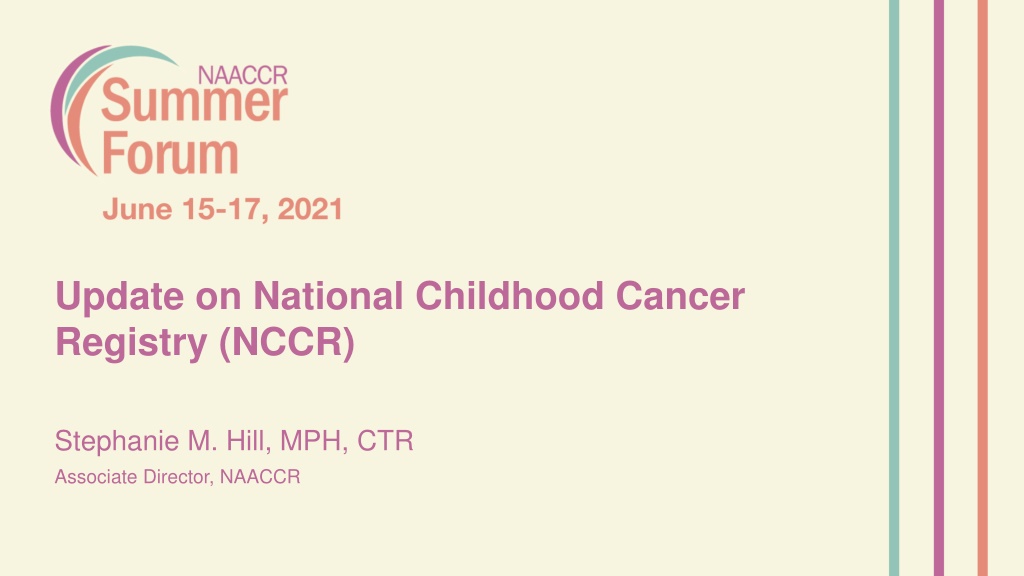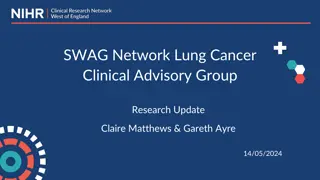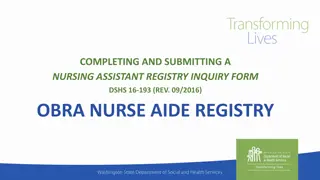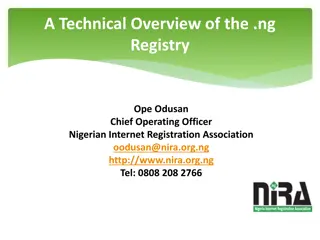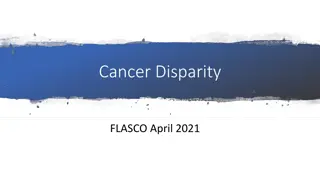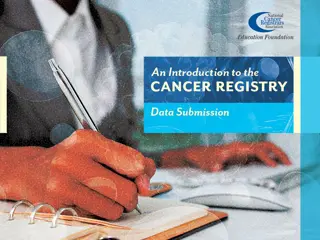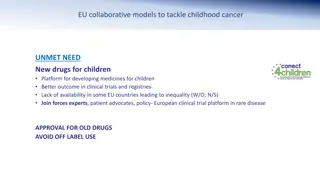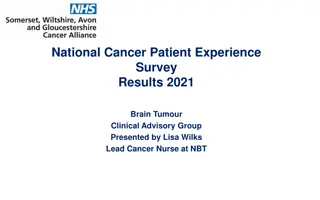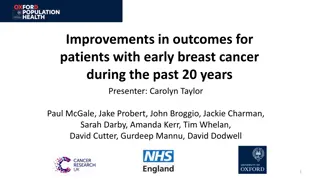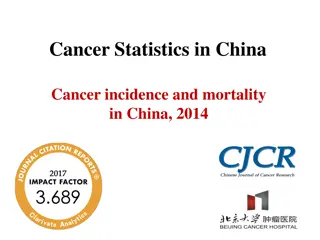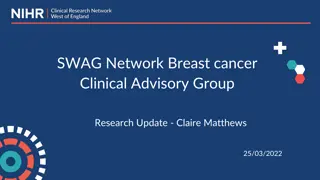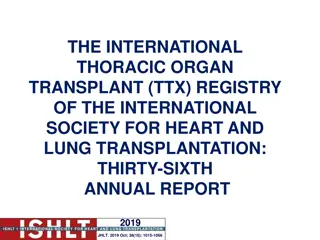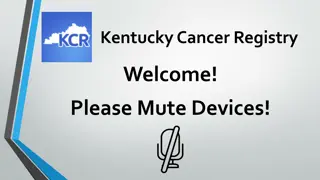Update on National Childhood Cancer Registry (NCCR): Current Status and Future Plans
Explore the justification, infrastructure, and progress of the National Childhood Cancer Registry (NCCR), focusing on the top causes of childhood cancer deaths, new diagnoses in 2017, and the importance of central cancer registry data. Discover the NCCR's coverage and efforts in residential history linkage for improved insights into pediatric cancer in the United States.
Download Presentation

Please find below an Image/Link to download the presentation.
The content on the website is provided AS IS for your information and personal use only. It may not be sold, licensed, or shared on other websites without obtaining consent from the author. Download presentation by click this link. If you encounter any issues during the download, it is possible that the publisher has removed the file from their server.
E N D
Presentation Transcript
Update on National Childhood Cancer Registry (NCCR) Stephanie M. Hill, MPH, CTR Associate Director, NAACCR
Objectives Discuss the justification for forming a national registry of childhood cancers Detail the NCCR infrastructure Provide an update on the current status of the NCCR Showcase future plans for the NCCR
Why NCCR? Top 10 Causes of Death from Disease, Age 0-19 deaths per 100,000 5-Year Relative Survival (%), 2011-2017 Ages 0-19 0 0.5 1 1.5 2 2.5 0 10 20 30 40 50 60 70 80 90 100 Lymphoid leukemia Malignant Neoplasms Acute myeloid leukemia Diseases of the Heart Hodgkin lymphoma Influenze & Pneumonia Non-Hodgkin lymphoma CNS & misc intracranial & intraspinal neo. Cerebrovascular Disease Neuroblastoma and other peripheral Septicemia Neuroblastoma and ganglioneuroblastoma Retinoblastoma Chronic Lower Respiratory Renal tumors In Situ Neoplasms and Hepatic tumors Nephritis, nephrotic synrome Malignant bone tumors Soft tissue and other extraosseous Diabetes Mellitus Germ cell & trophoblastic tumors & neo. Anemias Other malignant epithelial neo. and CDC WONDER Online Database, released in 2020. http://wonder.cdc.gov/ucd-icd10.html SEER Cancer Statistics Review, 1975-2018
Why NCCR? New Cancer Diagnoses, 2017 Childhood (age <20) Adult
What is the NCCR? The idea is to learn from every child with cancer in the United States. Ned Sharpless, MD Director, NCI
Central cancer registry data Detailed treatment Clinical trials Genomic data Social determinants of health Outcomes N C C R
NCCR Coverage 23 Participating SEER & NPCR registries represent ~77% of all pediatric cancer cases diagnosed between age 0 and 19 from 1995 to 2017 in the United States
Residential History Linkage Linked SEER registry data with LexisNexis database for residential history to improve future linkages
Inter-Registry Linkage Phase I Linkage between all SEER registries 143,194 total patients in NCCR cohort 874 matched pairs Manual Review Same Primary Different Primary Total Same primary 356 15 (4%) 371 SAS Algorithm Different primary 24 (13%) 157 181 Total 380 172 552
COG Coverage Preliminary Analysis (SEER 1995-2017), age <20 Registry Record from Confirmed COG facility Record Source Lower bound*** Upper bound*** No 31,265 Yes 56,952 Total Total Cases 88,217 Records only In State facilities* (81%) 20,647 51,071 58.0% 71,718 No/Unknown Yes In registry state plus other states (11%) 4,530 5,566 10,096 Record only from out of state facility** (7%) 6,088 315 65% 77% 6,403 *COG status of all in state records were validated **Patient state resident but all records from out of state; cannot verify COG status ***Percent cases definitely seen in at least one COG facility
Next Steps Inter-Registry Linkage - Phase II & III Phase II - Repeat linkage with additional NCCR-participating registries Phase III - Link with full Virtual Pooled Registry COG coverage analysis Analysis by age groups, race & ethnicity Link NCCR to COG CCRN and Project EveryChild Data Products
All pre-calculated statistics No geographic identifiers to minimize risk of reidentification of small numbers Over time will add new variables not collected by registries, e.g., Cancer Center Supplement projects Peds* Explorer
Its harder than you might imagine balancing issues of research and patient privacy are very challenging but I think we can do it. - Ned Sharpless, MD Director, NCI
Acknowledgements NCI SEER IMS NCCR Working Groups NAACCR staff Central cancer registries
